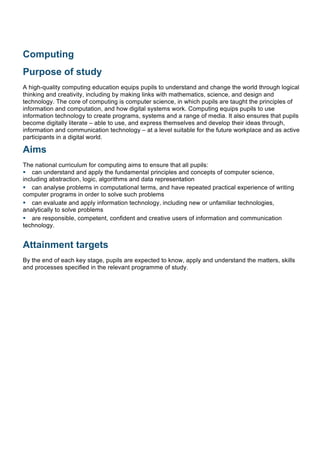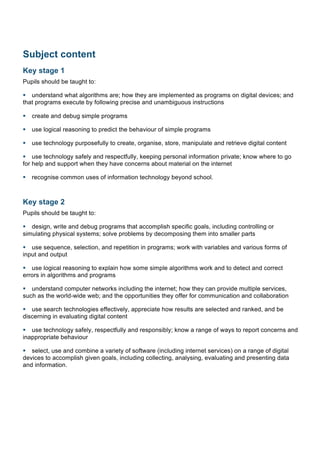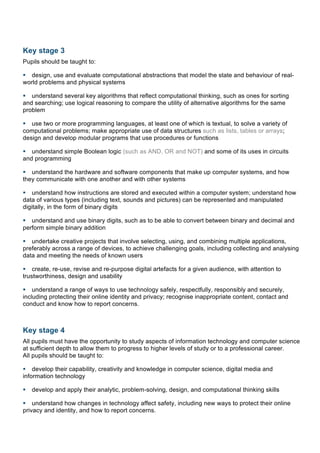Computing education aims to teach students fundamental computer science principles like logic and algorithms. It also teaches students how to use technology to create programs, systems, and media. The goals are for students to understand computer systems, be able to solve problems computationally, and use technology responsibly. The curriculum outlines what students should learn at each key stage, including understanding algorithms, debugging programs, and using technology safely.



